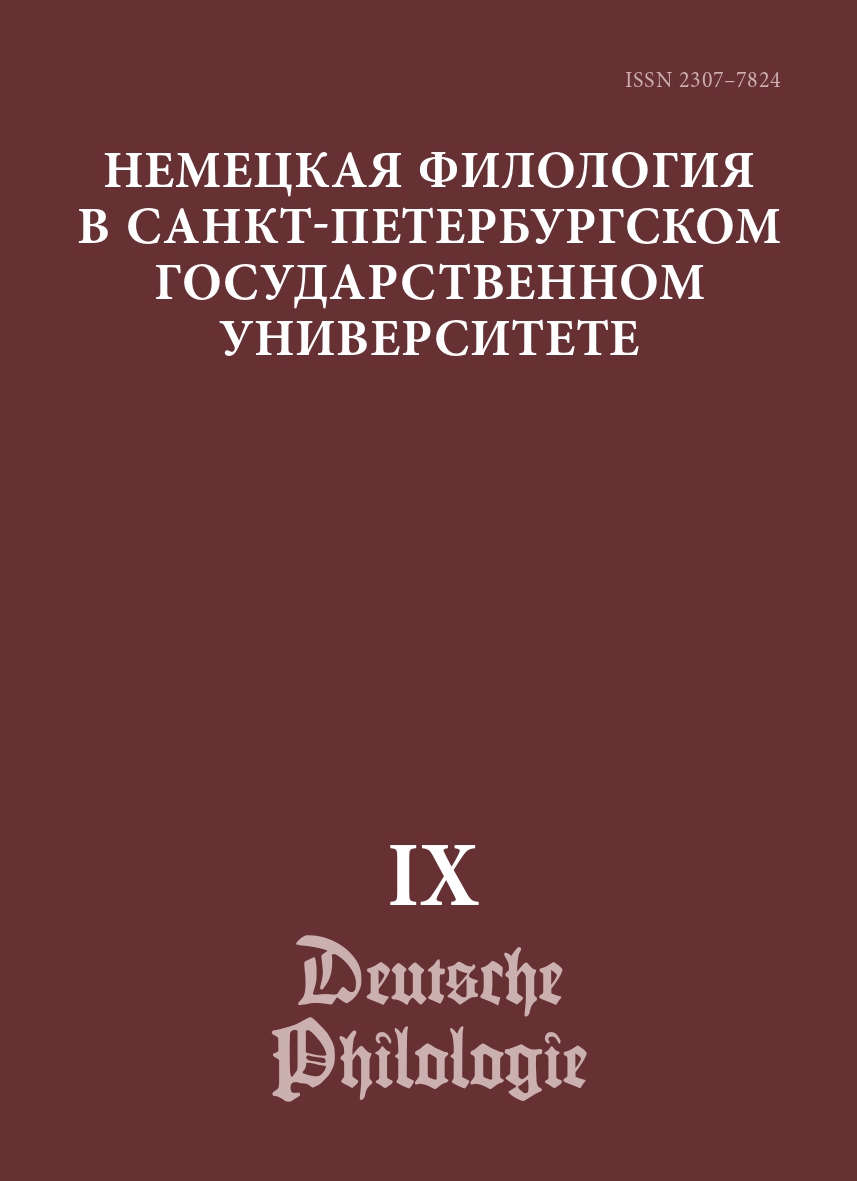DISTANT DIALOGUE OF THE APPELLATIVE TEXTS (On Modern German)
Abstract
The article considers a class of the appellative texts, the distinguishing feature of which is the existence of an appellative function. The appellative function as a function of a specific impact presupposing the motivation of the addressee to perform both pre-speech and speech as well as the post-communicative actions with a mental, emotional and/or physical reaction has an explicit expression in the appellative text. The aggregate of interacting linguistic units with the semantics of appellation represents in the appellative text regularly a functionally semantic category of appellation. The appellative dominant as a focusing component subordinates and transforms the remaining components of the text, takes its strong positions, provides the integration of the structure, influences the immanent text categories. The addressing, that is accented with the help of a functional-semantic category of appellation, makes the monologue speech form of the appellative text prototype in a dialogically open discourse. The appellative text, being monologue, reveals the following signs of the dialogue: orientation to a specific addressee, receiving a “text-response” in response to the “text-stimulus” resembling the exchange of cues in the dialogue, features of the linguistic architectonics in which there are welcome formulas, farewells, direct treatment, a set of the speech acts characteristic for the dialogue. Appeal text organizes a written dialogue, functioning on the basis of large blocks, stretched in time. Anthropocenters of appellative communication appear in the process of the communication as interacting, reflecting personalities. The sign of dialogue allows us to distinguish the appellative text from the regulatory text endowed with a similar communicative and pragmatic content of the motivation for action. The realization of the motivation for action in the regulatory text is distinguished by the implicit unidirectional appeal to the addressee.
Keywords:
semantic and functional category of appellation, addressing, dialogue, text type, text class, text category, appellative text, regulatory text
Downloads
Downloads
Published
How to Cite
Issue
Section
License
Условия передачи авторских прав на статьи и рецензии, опубликованные в ежегодном периодическом издании «Немецкая филология» регулируются условиями Лицензионного Договора автора с Санкт-Петербургским государственным университетом. В соответствии с Лицензионным Договором опубликованные материалы находятся в открытом доступе, а авторам бесплатно предоставляется неограниченные возможности их распространения и самостоятельного архивирования.




